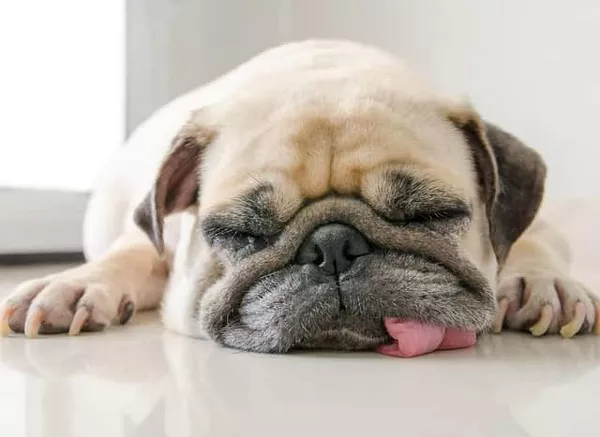Miniature Schnauzers are known for their distinctive appearance and charming personalities, making them a popular choice among dog lovers. However, prospective and current owners often have questions about the breed’s odor. Do Miniature Schnauzers have a particular smell? If so, what causes it, and how can it be managed? In this comprehensive article, we explore these questions, providing a detailed understanding of the scent profile of Miniature Schnauzers, the factors that can influence their odor, and the best practices for keeping them smelling fresh.
The Natural Scent of Miniature Schnauzers
Understanding Canine Body Odor
All dogs have a natural scent, which is produced by the oils in their skin and fur. This odor is generally not offensive and is a normal part of canine physiology. The intensity and character of this natural scent can vary between breeds and individual dogs. Miniature Schnauzers, like other dogs, have a baseline odor that is influenced by their genetics, diet, and overall health.
The Role of Coat and Skin Health
Miniature Schnauzers have a double coat consisting of a soft undercoat and a wiry outer coat. The health and cleanliness of their skin and coat play a significant role in their overall scent. A healthy Schnauzer with clean, well-maintained fur typically does not have a strong or unpleasant odor. Regular grooming and proper diet are crucial in maintaining the health of their skin and coat, which in turn helps control their natural scent.
Factors Contributing to Odor in Miniature Schnauzers
Skin Conditions and Allergies
One of the primary causes of unusual or strong odors in Miniature Schnauzers is skin conditions. These can include bacterial or fungal infections, allergies, and seborrhea (a condition that causes flaky, scaly skin). Infections and allergies can cause inflammation and excess oil production, leading to an unpleasant smell. Identifying and treating underlying skin conditions is essential in managing odor in Miniature Schnauzers.
Common Skin Conditions
Pyoderma: A bacterial skin infection that can cause redness, itching, and a foul odor.
Malassezia Dermatitis: A yeast infection that produces a musty smell and can cause itching and greasy skin.
Allergic Dermatitis: Allergic reactions to environmental allergens, food, or flea bites can lead to inflamed, itchy skin and secondary infections that produce an odor.
Ear Infections
Miniature Schnauzers are prone to ear infections due to their floppy ears, which can trap moisture and create an environment conducive to bacterial and yeast growth. Ear infections often produce a strong, unpleasant odor. Regular ear cleaning and monitoring for signs of infection, such as redness, discharge, and head shaking, are important preventive measures.
Causes of Ear Infections
Moisture: Water trapped in the ears after bathing or swimming can lead to infections.
Allergies: Allergies can cause inflammation and increase the risk of infections.
Foreign Objects: Grass seeds or other foreign objects in the ear canal can lead to infections.
Dental Issues
Bad breath, or halitosis, is another common source of odor in Miniature Schnauzers. Dental problems such as plaque buildup, gum disease, and tooth decay can cause a strong, unpleasant smell. Regular dental care, including brushing your dog’s teeth and providing dental chews, can help maintain oral health and reduce bad breath.
Common Dental Problems
Gingivitis: Inflammation of the gums caused by plaque and tartar buildup.
Periodontal Disease: A serious gum infection that damages the soft tissue and bone supporting the teeth.
Tooth Decay: Cavities and tooth decay can cause significant odor.
Diet and Digestion
A dog’s diet can also influence its odor. Poor quality food or a diet that does not agree with a dog’s digestive system can lead to flatulence and a general body odor. Ensuring that your Miniature Schnauzer is on a high-quality, balanced diet can help maintain their overall health and reduce odor.
Factors Affecting Diet and Digestion
Food Quality: Low-quality ingredients can lead to poor digestion and increased odor.
Food Allergies: Some dogs are allergic to certain ingredients, which can cause digestive upset and odor.
Supplements: Adding digestive enzymes or probiotics can help improve digestion and reduce odor.
Anal Gland Issues
Anal glands in dogs can become impacted or infected, leading to a strong, fishy odor. Miniature Schnauzers, like other small breeds, can be prone to anal gland issues. Regular check-ups and expressing the anal glands as needed can help prevent problems.
Signs of Anal Gland Problems
Scooting: Dragging the rear end on the ground.
Licking or Biting: Excessive attention to the anal area.
Swelling or Discharge: Visible signs of inflammation or infection around the anal area.
Preventive Measures and Odor Control
Regular Grooming
Maintaining a regular grooming routine is essential for keeping Miniature Schnauzers clean and odor-free. This includes brushing their coat several times a week, bathing them every 4-6 weeks, and keeping their beard and feet clean. Regular grooming helps remove dirt, debris, and excess oils that can contribute to odor.
See Also: Do Schnauzers Have a Double Coat?
Grooming Tips
Brushing: Use a slicker brush and a metal comb to remove tangles and dead hair.
Bathing: Use a gentle, dog-specific shampoo to avoid irritating the skin.
Trimming: Regularly trim the hair around the face, ears, and paws to prevent dirt buildup.
Dental Care
As mentioned earlier, dental care is crucial in preventing bad breath and maintaining overall health. Brush your Miniature Schnauzer’s teeth daily with dog-specific toothpaste and provide dental chews or toys to help reduce plaque and tartar buildup.
Dental Care Routine
Brushing: Use a soft-bristled toothbrush and canine toothpaste.
Chews and Toys: Provide dental chews and toys to promote oral health.
Professional Cleanings: Schedule regular veterinary cleanings as needed.
Diet and Nutrition
Feeding your Miniature Schnauzer a high-quality diet that meets their nutritional needs can improve their overall health and reduce odor. Avoid feeding low-quality, filler-laden foods that can lead to digestive issues and increased odor.
Nutritional Considerations
High-Quality Protein: Ensure the diet includes high-quality sources of protein.
Balanced Nutrients: Provide a balanced diet with the necessary vitamins and minerals.
Digestive Aids: Consider adding probiotics or digestive enzymes to support gut health.
Regular Veterinary Check-Ups
Regular veterinary check-ups are essential for early detection and treatment of health issues that could contribute to odor. Your veterinarian can help identify and address skin conditions, ear infections, dental problems, and other health concerns that might cause your Miniature Schnauzer to smell.
What to Expect During Check-Ups
Physical Examination: A thorough physical exam to check for signs of infection or health issues.
Skin and Coat Assessment: Evaluation of the skin and coat for signs of infection or parasites.
Dental Check: Examination of the teeth and gums for signs of disease or decay.
Managing Specific Odors
Ear Odor
To manage ear odor, clean your Miniature Schnauzer’s ears regularly with a vet-recommended ear cleaner. Avoid using cotton swabs that can push debris further into the ear canal. Monitor for signs of infection and seek veterinary care if you notice redness, swelling, or discharge.
Skin Odor
If your dog has a skin condition that causes odor, follow your veterinarian’s treatment plan, which may include medicated shampoos, topical treatments, or oral medications. Keep your dog’s skin and coat clean and dry to prevent infections.
Anal Gland Odor
For anal gland issues, have your veterinarian or a professional groomer express the glands regularly. If your dog has recurrent problems, your vet may recommend a high-fiber diet or other treatments to help manage the condition.
Conclusion
Miniature Schnauzers, like all dogs, have a natural scent that can vary depending on their health, diet, and grooming routine. While they are not typically known for having a strong odor, certain factors such as skin conditions, ear infections, dental issues, and diet can contribute to unpleasant smells. By maintaining a regular grooming routine, providing high-quality nutrition, and ensuring regular veterinary care, you can keep your Miniature Schnauzer smelling fresh and healthy.
Understanding the specific causes of odor in Miniature Schnauzers and taking proactive measures to address them is key to enjoying a clean and pleasant-smelling companion. Whether you are a current owner or considering adding a Miniature Schnauzer to your family, being informed about their scent profile and the best practices for odor management will help you provide the best care for your beloved pet.
Related Topics:


























